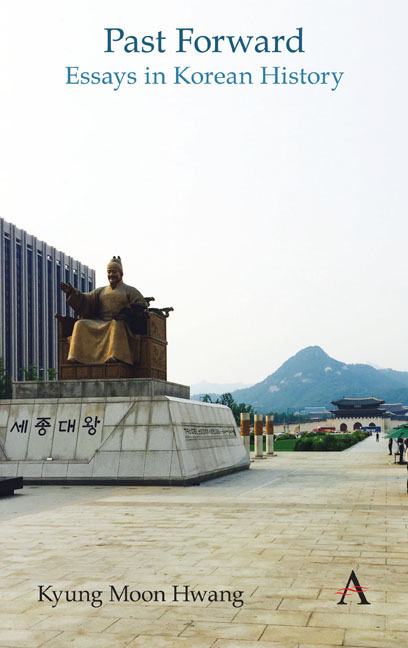Book contents
- Frontmatter
- Contents
- List of Figures
- Foreword
- Chronologies of Korean History
- Themes
- Acknowledgments
- Note on Romanization and Spelling
- Part I Circulating History
- Part II Durable Traditions
- 8 Marking the New Year
- 9 Slavery, Bondage, and Social Hierarchy
- 10 Marriage, Adultery, and Concubinage
- 11 Buddhism and Korean Identity
- 12 Christianity's Rapid Rise
- 13 Civil–Military Balance in Politics
- 14 Regionalism in Elections
- 15 Yeongnam's Strong Presidential Politics
- Part III Ancient Remains
- Part IV Dynastic Depths
- Part V Modern Origins
- Part VI Challenges of Nationhood
- Part VII History Makers
- Part VIII External Presences
- Part IX Trials of Modernization
- Part X Gripped by the Past
- Index
10 - Marriage, Adultery, and Concubinage
from Part II - Durable Traditions
- Frontmatter
- Contents
- List of Figures
- Foreword
- Chronologies of Korean History
- Themes
- Acknowledgments
- Note on Romanization and Spelling
- Part I Circulating History
- Part II Durable Traditions
- 8 Marking the New Year
- 9 Slavery, Bondage, and Social Hierarchy
- 10 Marriage, Adultery, and Concubinage
- 11 Buddhism and Korean Identity
- 12 Christianity's Rapid Rise
- 13 Civil–Military Balance in Politics
- 14 Regionalism in Elections
- 15 Yeongnam's Strong Presidential Politics
- Part III Ancient Remains
- Part IV Dynastic Depths
- Part V Modern Origins
- Part VI Challenges of Nationhood
- Part VII History Makers
- Part VIII External Presences
- Part IX Trials of Modernization
- Part X Gripped by the Past
- Index
Summary
In February 2015, South Korea's Constitutional Court issued a ruling that decriminalized adultery. Although rarely enforced or enforceable, there had been a law, passed just after the Korean War in 1953, that sentenced anyone found guilty of extramarital sexual relations to up to two years in jail. In its 2015 judgment, the court declared that such a law violated an individual's personal freedom, but not surprisingly there arose opposition from various interest groups that decried the potential harm to family life.
What became somewhat lost in the public debate, however, was the law's original intent, which was less about restricting liberties and more about enforcing greater gender equality. In fact, the larger motive was to overcome an institution hundreds, if not thousands, of years old: concubinage. For this historian of Korea, concubinage remains one of Korea's most interesting and long-standing historical problems. I would suggest, in fact, that most of the efforts to reform Korean family practices over the past century or so, including through legislation, have been related to the ingrained practices of concubinage.
Of course, Korea was hardly unique. Concubinage, the institutionalization of extramarital sexual relations between a privileged male and a subservient female, has been a universal phenomenon throughout world history. But the particular turns that this issue took in Korea illustrate some distinctive features of the country's history.
It is difficult to say when concubinage became such a normal aspect of Korean life, at least among the elites, but it probably dates back at least a thousand years, if not more. Indeed, so fixed was concubinage in Korean society that even the fervor of (Neo-)Confucianism, the comprehensive ideology behind the establishment and maintenance of the Joseon dynasty (1392–1897), could not weaken it. Like religio-ethical systems elsewhere after the ancient era, Confucianism appeared to favor the sanctity of marriage as central to the family system. In the early Joseon period, this meant that a privileged Korean man could no longer have more than one wife.
Instead, a woman who used to be considered a second or third wife became downgraded into the status of a concubine, and a concubine's children, who might be raised in their father's household, suffered legal and social discrimination.
- Type
- Chapter
- Information
- Past ForwardEssays in Korean History, pp. 27 - 28Publisher: Anthem PressPrint publication year: 2019



